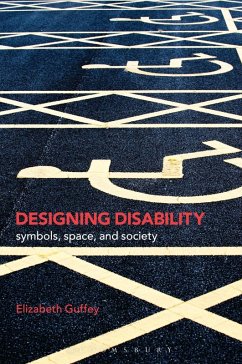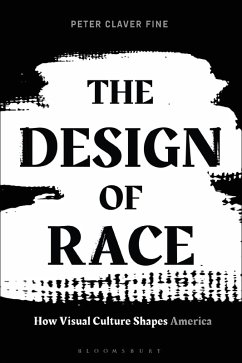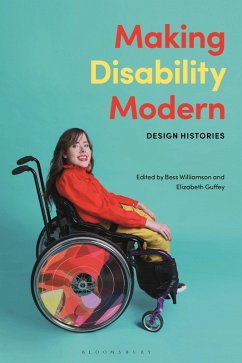
Making Disability Modern (eBook, PDF)
Design Histories
Redaktion: Williamson, Bess; Guffey, Elizabeth
Versandkostenfrei!
Sofort per Download lieferbar
19,95 €
inkl. MwSt.
Weitere Ausgaben:

PAYBACK Punkte
10 °P sammeln!
Making Disability Modern: Design Histories brings together leading scholars from a range of disciplinary and national perspectives to examine how designed objects and spaces contributes to the meanings of ability and disability from the late 18th century to the present day, and in homes, offices, and schools to realms of national and international politics. The contributors reveal the social role of objects - particularly those designed for use by people with disabilities, such as walking sticks, wheelchairs, and prosthetic limbs - and consider the active role that makers, users and designers ...
Making Disability Modern: Design Histories brings together leading scholars from a range of disciplinary and national perspectives to examine how designed objects and spaces contributes to the meanings of ability and disability from the late 18th century to the present day, and in homes, offices, and schools to realms of national and international politics. The contributors reveal the social role of objects - particularly those designed for use by people with disabilities, such as walking sticks, wheelchairs, and prosthetic limbs - and consider the active role that makers, users and designers take to reshape the material environment into a usable world. But it also aims to make clear that definitions of disability-and ability-are often shaped by design.













